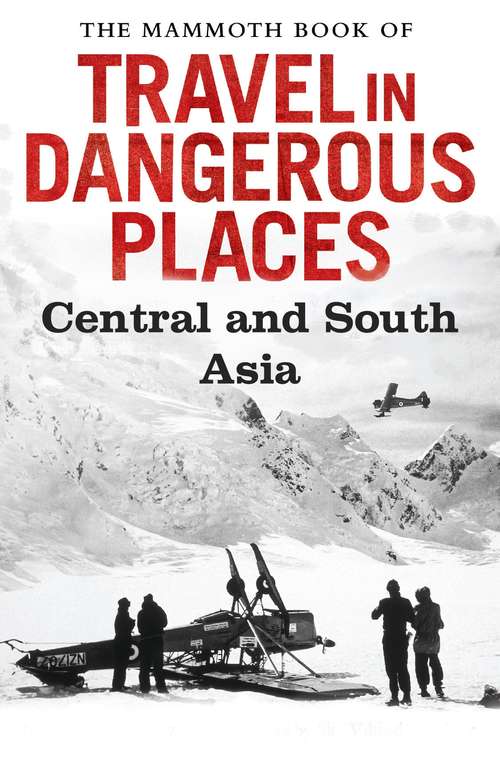
The Mammoth Book of Travel in Dangerous Places: Central and South Asia
Travelogues
Synthetic audio, Automated braille
Summary
Alarms amongst the Uzbeks - Alexander BurnesOf all the "forbidden" cities (Timbuktu, Mecca, Lhasa, Riyadh and so on) none enjoyed a more fearsome reputation that Bukhara in Uzbekistan. The first British Indian expedition, that of William Moorcroft in 1819-26, had… never returned. Moorcroft's disappearance, like that of Livingstone or Franklin, posed a challenge in itself and preyed on the minds of his immediate successors. Heavily disguised and in an atmosphere of intense intrigue, Burnes and Dr James Gerard crossed the Afghan Hindu Kush in 1832 and approached the scenes of Moorcroft's discomfiture. They would both return; and "Bukhara Burnes" would become the most renowned explorer of his day.On the Roof of the World - John WoodIn 1937 Alexander Burnes returned to Afghanistan on an official mission. Amongst his subordinates was a ship's lieutenant who, having surveyed the navigational potential of the river Indus, took off on a mid-winter excursion into the unknown Pamirs between China and Turkestan. Improbably, therefore, it was John Wood, a naval officer and the most unassuming of explorers, who became the first to climb into the hospitable mountain heartland of Central Asia and the first to follow to its source the great river Oxus (or Amu Darya.)Exploring Angkhor - Henri MouhotBorn in France, Mouhot spent most of his career in Russia as a teacher and then in the Channel Islands. A philologist by training, he also took up natual history and it was with the support of the Royal Zoological Society that in 1858 he set out for South East Asia. From Siam (Thailand) he penetrated Cambodia and Laos, where he died; but not before reaching unknown Angkhor and becoming the first to record and depict the most extensive and magnificent temple complex in the world. His discovery provided the inspiration for a succession of subsequent French expeditions up the Mekong.Over the Karakorams - Francis Edward YounghusbandAs leader of the 1904-5 British military expedition to Lhasa and as promoter of the early assaults on Mount Everest, Younghusband came to epitomize Himalayan endeavour. To the mountain he also owed his spiritual conversion from gung-ho solider to founder of the World Congress of Faiths. His initiation came in 1887 when, as the climax to journey from Peking across the Gobi desert, he determines to reach India over the unexplored Mustagh Pass in the Karakorams - "the most difficult and dangerous achievement in these mountains so far" (S.Hedin).Trials in Tibet - Ekai KawaguchiBy the 1890's the capital of "forbidden" Tibet, unseen by a foreigner since Huc's visit, represented the greatest challenge to exploration. Outright adventurers like the dreadful Henry Savage Landor competed with dedicated explorers like Sven Hedin, all succumbed to to a combination of official vigilance and physical hardship. The exception, and the winner in "the race for Lhasa", was a Buddhist monk from Japan whose expedition consisted of himself and two sheep. Ekai Kawaguchi was supposedly a pilgrim seeking religious texts. His faith was genuine and often tested, as during this 1900 excursion into western Tibet; but he is also thought to have been an agent of the British government in India.